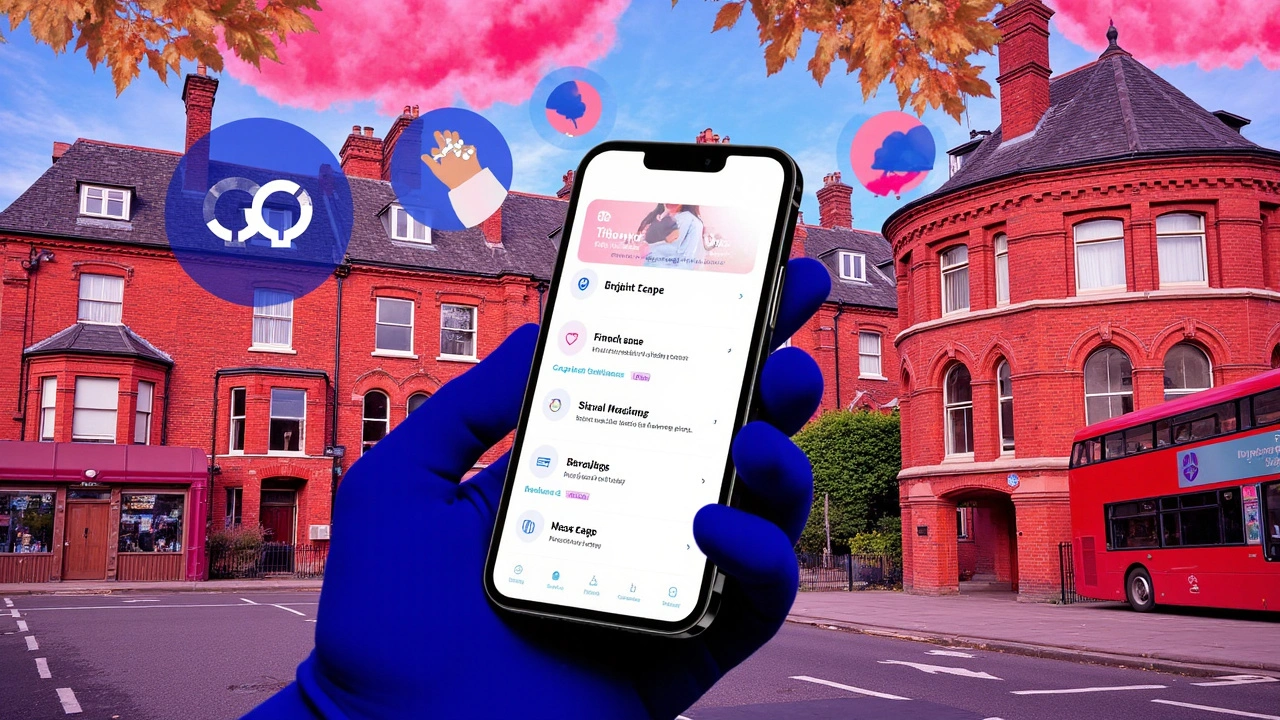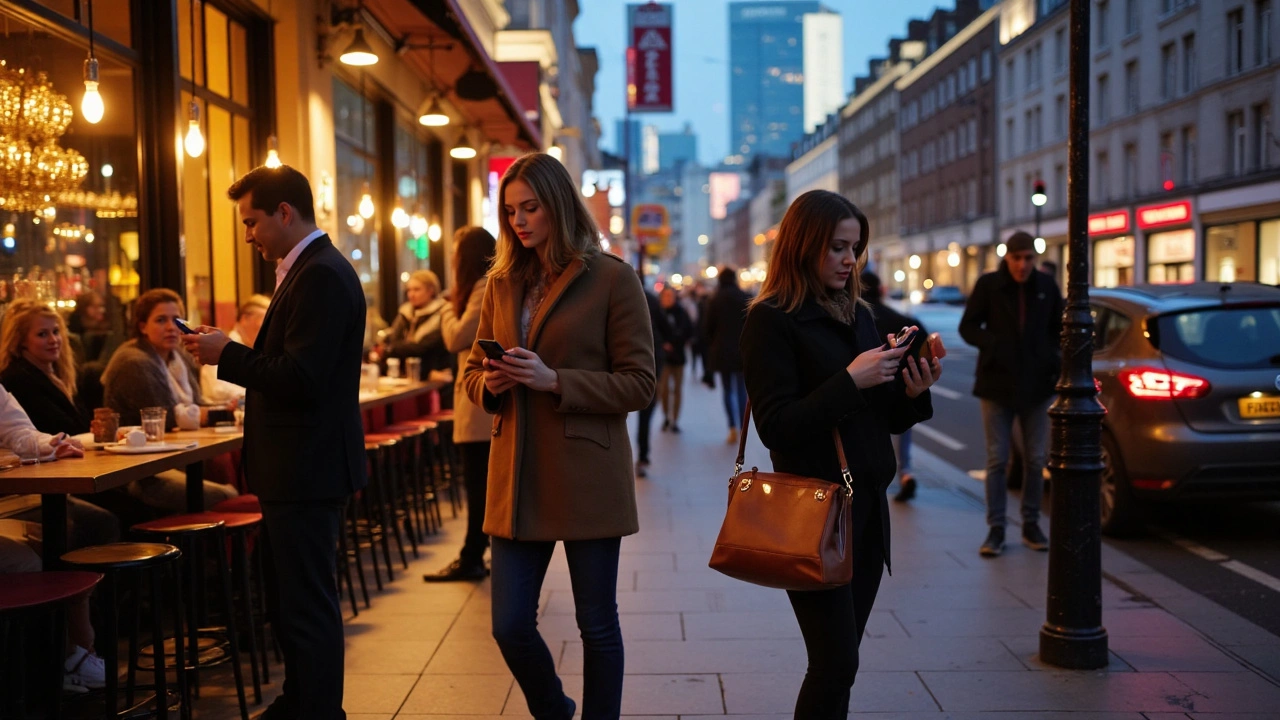Ever imagined how a swipe on your smartphone could impact sex work in your city? We’re not talking science fiction. Right now, tech is turning the world of local prostitution services upside down. New apps, anonymous payment methods, and digital advertising promise smoother, safer, and more private experiences for workers and clients alike. Still, not everyone is cheering—some say there’s a dark side, including privacy pitfalls and new legal headaches. Whether intrigue, concern, or plain curiosity brought you here, you’re about to get an inside look at everything tech is doing to local sex work—good, bad, and surprising.
Definition and Context
Let’s clear this up first: when we say “local prostitution services,” we’re talking about consensual adult sex work, usually involving escorts or other providers in your area. This market has existed forever, but the way it works has changed more in the last decade than the hundred years before. Tech is the game-changer. Just look at how Craigslist and Backpage in the 2000s moved sex work from street corners to keyboards, giving workers more control over who they meet and when. After lawmakers cracked down on those platforms, newer apps, encrypted messaging, and niche sites filled the gap. If you think this is all sketchy and dark alleys—you’re way off. Now, a lot of business starts with a discreet website or even an Instagram DM.
The numbers back it up. In 2019, a study by the Urban Institute estimated that online escort sites brought in $2.5 billion in the U.S. alone. It’s not just about the money—it’s about safety, too. Sex workers can screen clients, share bad date lists, and send updates in real-time to friends. Clients get more info up front, too: reviews, photos, even video intros. As of 2025, a lot of the scene is tucked behind members-only communities, private Telegram or Signal chats, and encrypted payment systems like Bitcoin. Everything is faster, and somehow it feels both riskier and safer at the same time.
But tech comes with its headaches. Cops now use AI tools to track online ads. Scammers set up fake profiles to lure and cheat both workers and customers. And laws haven’t kept up—if you’re not careful, you could accidentally get caught by stings or violate “facilitation” laws, even if you’re just hosting a website. No one wants to wade blindly into this world, and that’s why understanding how tech is changing things is so critical.
A legal expert once put it this way:
“Technology hasn’t eliminated the sex trade—it’s given it a new set of wings, along with a fresh set of risks.”If you ask me, that sums things up better than a hundred news articles ever could.
Benefits of Tech’s Impact on Prostitution Services
It’s tempting to only see the problems — scams, surveillance, legal bruises — but honestly, the upsides are massive. For starters, technology gives workers way more control over who they meet. You’d be surprised how much of a difference being able to check a client’s ID, social profiles, or references can make. In cities like London, dozens of independent workers share a single app to swap notes about dangerous clients. These “bad date lists” are like neighborhood watch, but sexier and more life-saving. Workers literally text each other, “Hey, watch out for this guy,” or, “Avoid this address.”
Cash payments led to robbery risks for decades. Now, with mobile wallets and even anonymous crypto payments, many jobs end with a single ding on the phone screen. Less need to carry wads of cash means fewer chances to get robbed. Apps like Tryst and Eros.com let providers offer verified reviews, bios, and clear boundaries. No one likes awkward scenes, and tech lets both sides know what’s on the table before anyone meets up.
Privacy? Game changer. Burner phones used to be standard, but with apps like Signal and Snap, both sides can chat and set up appointments without exposing real names or numbers. Some even use unique one-time video introductions (think Cameo, but a lot spicier) to reassure clients or workers they’re for real. Technology doesn’t guarantee safety, but having a paper trail of verified messages and time-stamped bookings sure helps if conflicts arise.
Don’t forget business perks, too. Tech has made self-marketing a breeze. Social media gives select workers almost celebrity profiles, with loyal client bases and super-specific branding (“the Russian bombshell” or “petite tattooed student” isn’t your average yellow-pages ad). Booking platforms mean less time haggling about details and more time focused on the actual service. Workers can block problem clients with a tap, post new photos instantly, and even schedule “work” around other gigs or family life.
All in all, for those who navigate it wisely, tech is a ladder up. You just need to keep an eye on each rung as you climb.

Types of Prostitution Services Enabled by Tech in Local Communities
If you think local prostitution services all look the same these days, think again. Tech unlocked an entire menu of options, and some might surprise you.
- Online Escort Agencies: Classic agencies went digital, with fancy browsing platforms where you can sort by location, looks, or even quirky interests. These digital storefronts often come with booking forms, detailed bios, even calendars so you know who’s available.
- Independent Providers: Lots of workers skip agencies entirely, running their own Instagram, Twitter, Fetlife, or private websites. Clients appreciate the direct connection—it feels more genuine and less corporate. Some sites focus on video chats or “teledates” for clients who aren’t looking for in-person meetings, and many of these virtual services took off during the pandemic.
- Sugar Dating and Companionship Apps: With platforms like Seeking or Ashley Madison, lines blur between traditional escorting and “sugaring.” Tech gives people a discreet way to seek ongoing arrangements or specific companionship without sticking labels on it. Not your grandma’s version of dating, for sure.
- Specialty Providers: From kink specialists to digital dommes (dominatrixes who never meet in-person), people now find ultra-specific, personalized services through apps and forums. Some sites focus on massage, others on foot worship, camming, or even cosplay meetups. The variety is wild.
- Community Networks: Private members-only groups pop up on encrypted apps like Telegram, Signal, or Mastodon. Instead of regular ads, these groups rely on referrals and word-of-mouth. You’ll find spreadsheets with available times, detailed “menu” items, and even loyalty discounts for regulars.
If you’re searching for something specific, technology makes it simple. No awkward calls, just a few clicks to see who’s nearby and open for business. It’s like ordering food delivery, except with very different appetizers.
How to Find Tech-Driven Prostitution Services Locally and What the Experience Is Like
If you’re thinking of looking for local escort services, you’ll want to know where to begin. Thanks to tech, the whole process is way more user-friendly and discreet—no need for sketchy alleys or cryptic phone booths.
The first stop is usually specialized websites like Tryst, Eros, Slixa, or even niche subreddits. These sites list profiles by city, with filters for budget, appearance, interests, even service types. Some platforms use built-in messaging, so you never share your real contact info. Prefer an app vibe? Telegram, Kik, and Signal host dozens of invite-only groups where available services get posted daily. If you want discretion, these apps are the gold standard for private, encrypted chats.
Step by step, the process goes like this:
- Browse profiles, check out reviews, and read bios (the more detailed, the better!).
- Send a polite, clear message introducing yourself and what you’re looking for. Copy-paste messages almost always get ignored, so take an extra minute.
- Expect screening. Any legit provider will ask for light screening: text verification, references, or a harmless selfie. If someone skips this, it’s either a scam or not worth your risk.
- Settle the terms—duration, location, agreed services, and payment up front. Apps like Cash App or crypto wallets are most common now, though some still take in-person cash.
- Show up on time and follow the agreed etiquette: be respectful, clean, and avoid “haggling” on site. Nothing nukes vibes faster than surprise negotiations.
Your session usually starts with a quick check-in (sometimes even a basic ID look, for everyone’s safety), then it’s on to whatever was agreed. Hotel meets, home visits, and “outcall” sessions are all normal, but many workers now stick to one or two safe venues. Workers often use text check-ins with friends every hour for security—don’t take offense, it’s just good sense.
Expectations? It’s more businesslike than many think. You’ll almost always know exactly how much time you get, what’s included, and the boundaries—no surprises. The best part is how technology lets both sides handle things smoothly: discreet communication, digital payment, no judgment, faster feedback, and the ability to walk away if things feel off. People say it’s as close to “ordering a service” as you can get in something so personal.
Feeling nervous? That’s normal. Reviews, social media, and agency ratings give some peace of mind. Don’t fall for anyone promising “instant romance” for big bucks, either—classic scam. And remember: providers expect you to respect their time, personal space, and privacy.

Pricing, Booking, Safety, and a Comparison Table: Old School vs. Tech-Driven Services
Let’s talk cash, because no one likes surprises when wallets come out. In 2025, tech-driven prostitution services are usually very transparent with pricing. You’ll find anything from $100 “quick meets” to $500+ VIP sessions, all posted right on profiles. Some workers use sliding scales for regulars or package deals (“three-hour dinner date with after-hours fun”), and a growing number offer tipping via Cash App or Venmo for extras. Crypto payments are becoming the norm for those who value discretion above all else, and these are processed just as fast as any regular ecommerce purchase.
Booking is simple: see someone available, book via website or app, sometimes even pay a small deposit to lock your spot. Last-minute cancellations usually get blacklisted, which has actually increased reliability for everyone involved. The downside? Every payment leaves a trail (even with cash apps), so privacy lovers tend to stick to crypto or even old-fashioned cash-in-hand for major meets. Booking platforms often send a calendar invite, which, trust me, feels surreal for this kind of appointment—but it helps nail down details so there’s less chance for misunderstandings.
Safety is where technology really shines. Booking platforms can require ID or verified social media for both parties. Many send time-stamped “check-in” texts to emergency contacts. Encrypted apps mean chats can be deleted instantly if things get weird. And reviews go both ways: yes, clients review workers, but many workers now review clients, too. Repeat offenders—rude, no-shows, or violent—get blacklisted community-wide. These new guardrails make it easier to trust the process, but it’s always smart to:
- Confirm every booking detail in writing (screenshots help if disputes arise).
- Stick to well-rated, complete profiles with verified reviews.
- Avoid anyone who tries to rush you, skip screening, or who can’t answer basic questions.
- Always let a friend know about your plans, or set up an automated check-in notification.
- Use payment methods you trust—if someone pushes a weird new app, double-check for scams.
Here’s a handy comparison table to quickly spot the differences:
| Old School Services | Tech-Driven Services |
|---|---|
| Street corners, word of mouth, anonymous payphones | Websites, social media, encrypted messaging apps |
| Cash only, not always clear rates | Transparent pricing, various payment options (crypto, e-wallets, cash) |
| Very little screening, risky meets | Built-in screening, digital reviews, blacklist sharing |
| High risk of scams, violence, law enforcement stings | Lower risk if you check reviews and use secure payment |
| Hard to book, unreliable communication | Easy, fast booking, direct messaging, feedback loops |
A lot of what used to be back-alley stress is now handled with the same tech that books your dog walker. Wild, right? Just goes to show: when you put power in people’s hands, things get safer, cleaner, and a whole lot smarter.
Still curious? Always double-check laws in your city and keep up with tech trends. Staying alert is the best way to enjoy all the upsides while dodging the downsides.




